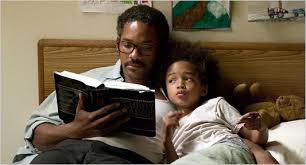5 Surprising Tips for a Nonfiction Book Deal
Today’s guest post is by Lisa Tener.
You’ve probably heard the usual tips about getting a nonfiction book deal, particularly in the arena of prescriptive books:
- “Grow Your Platform and Showcase it in Your Proposal.”
- “Engage Your Community.”
- “Write Something Fresh.”
- “Showcase Your Credentials.”
- “Capture a Strong Voice from the Start of the Proposal.”
- “Include the latest research if there is evidence to back up your methods or advice.”
Those are all important ingredients to interest literary agents and publishers. However, there are additional strategies that many people don’t know that can make your proposal stand out.
For instance:
- Demonstrate that your people buy from you.
It’s great to have a mailing list of 30,000, but if few of those people ever buy from you, they may be unlikely to buy a book. Publishers know this. If, on the other hand, you have 60,000 downloads of your app, that’s going to be more compelling than a list that sits there. Emphasize your sales, and you’ll get the attention of an agent or acquisitions editor.
If you don’t sell anything yet, consider adding a product such as a simple app (on a readily available platform—you don’t have to invest thousands of dollars). Or sell a short ebook with information that will be valuable to your people but doesn’t give away the heart of the book you are pitching.
- Keep them curious.
In your chapter outlines, provide information about the specific benefits readers will receive by reading that chapter. Indicate where there will be stories, exercises, and other features—as well as the benefits of those features. But don’t retell the whole anecdote, or even necessarily try to summarize it.
It’s as much about what you leave out as what you put in. If it reads too much like a comprehensive summary, agents and publishers may think they have all the information— they’ll feel they don’t need to read the book after reading the proposal. Your outline should convey the value of what’s in the chapter without necessarily revealing every detail.
Keep your description mysterious enough so that the agent or publisher feels a yearning to read the whole thing and get the more complete understanding. You want them to feel as if they don’t quite know what the book will say; this is new information. They have a sense. And it’s intriguing, compelling. Clearly, useful. That’s it.
One literary agent I know doesn’t even include a full sample chapter in a proposal. He said he prefers to generate enough mystery that a publisher (and the entire acquisitions board) feels as if they need to acquire the book to satisfy their curiosity.
I wouldn’t necessarily recommend submitting incomplete sample chapters. It may work better for an agent who already has a track record with the publisher and a strong relationship. Still, the agent’s point is well taken. Hold back just enough to create a sense of eagerness on their part.
- Find an underserved market.
In a crowded arena, such as relationship books, find a market that’s not being served. In a private interview for my book-writing students, literary agent, Regina Brooks noted that a book about interracial dating got scooped up by a publisher because it addressed the specific needs of a market that were not addressed by other books.
- Be controversial.
It’s okay if you rile some people with your writing. In fact, controversy can get you lots of publicity. As they say, “There’s no such thing as bad publicity.”
Maybe I wouldn’t go that far, but controversy is not a bad thing in itself. I wouldn’t recommend being a jerk, but feel free to disagree with high-status authorities in your field if you believe in what you share. Publishers and agents will want to know how you back up your claims.
Depending on the subject and type of publisher, some will only be happy with scientific research or data. Others may be fine with intuition or experience, if you can show credibility through the stories you share, the people you’ve helped, etc. Bottom line: controversy sells when it comes to the media—and publishers know it.
- Embrace the counterintuitve.
We write books to change things. If your book busts myths or shares information that defies what people currently believe or expect, showcase the surprises in your book. Like controversy, freshness sells.
When writing a book proposal, it’s important to be in touch with your passion and why you’re writing this book, but remember to explore the mind-set of the publisher. They want to sell as many books as possible! Think about your proposal from their point of view, and you will naturally write a better proposal.
For more tips, join me for a free telecall on how to Fast Track Your Book Proposal on May 3 at 8:30 pm ET, 5:30 pm PT. Sign up here.
 Lisa Tener is an authority on book writing and publishing and an award-winning book coach. She guides experts, entrepreneurs, and visionaries to joyfully write and publish highly successful nonfiction books. Dozens of her clients have received 5- and 6-figure book deals with major publishers, have won major book awards, and/or have been on national media, including Today, Good Morning America, and the Oprah Network.
Lisa Tener is an authority on book writing and publishing and an award-winning book coach. She guides experts, entrepreneurs, and visionaries to joyfully write and publish highly successful nonfiction books. Dozens of her clients have received 5- and 6-figure book deals with major publishers, have won major book awards, and/or have been on national media, including Today, Good Morning America, and the Oprah Network.
Featured photo by Lauren Randolph












Wonderful advice, Lisa. Thanks so much for sharing this. I’m signed up for your free telecall. Are book proposals good for memoir using these tips?
I don’t have any full-length books published, either e-bks or hard copies. I’ve published short non-fiction, fiction stories, memoir, and poetry. I have a blog, but pitiful followers. But the followers I do have visit regularly.
I’ve really got to find a way to glean more followers and create a personal list in order to submit my college memoir for consideration when it’s finished. I truly appreciate any insight you may suggest. All best to you.
Sorry for my delay, Victoria. These tips are best for prescriptive nonfiction (self-help, how-to, business) but they can also support a memoir. For instance, I worked with Karin Esterhammer on her 2018 Nautilus Award winning memoir, So Happiness to Meet You: Foolishly, Blissfully Stranded in Vietnam, and we did use many of the tips I shared on the call. Yes! Think of a free gift your visitors would enjoy that would be compelling enough to give you their email address. Maybe a college days quiz? or something else fun in the spirit of the memoir?
Great article! The strategies you outlined to help make your book proposal stand out were helpful. I recently came across another great resource for non-fiction authors that outlines exactly how to write a book proposal. Check out the article here: https://scribewriting.com/book-proposal-template/
I also have an excellent template for writing a nonfiction book proposal, if anyone wants it. Just contact me.